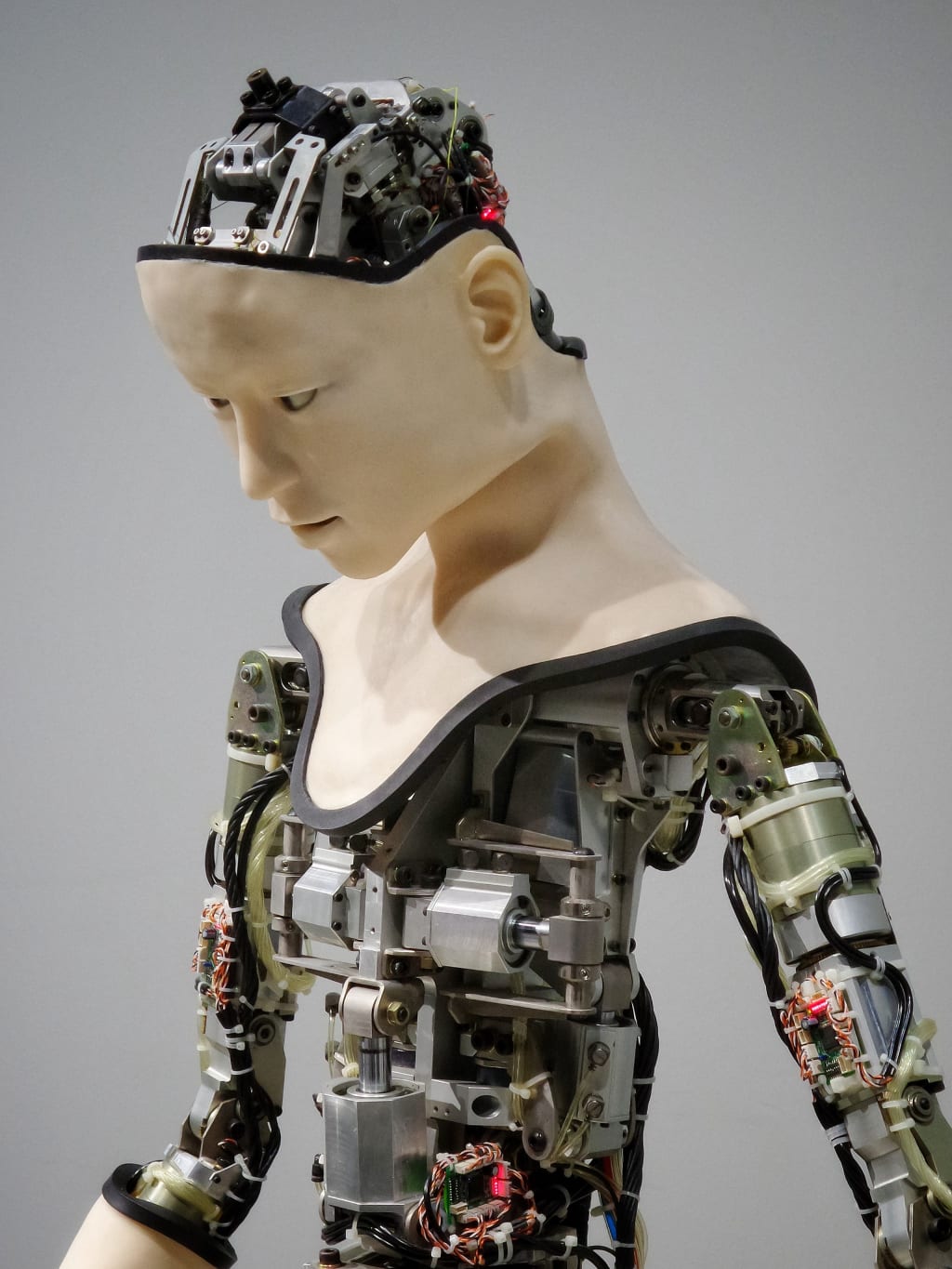An AI Takes an IQ Test
The Non-Existent (AI) Tested for the Non-definable (Intelligence)

If you wanted to measure something, but you could not define what that thing was, or how it worked, or what it did, what would you do? What if you “knew” the thing you were measuring existed, were absolutely sure of it, and completely believed that it was something very important? Moreover, all of your friends and family and every other person in the world thought the same way. They all truly believed this undefinable thing really existed and that it was something very, very important. How exactly would you measure it?
This is the conundrum that faces us when we think about how to measure intelligence in ourselves. We cannot define intelligence, we don’t know the molecular basis of it, where it “resides” in the brain (an illogical/nonsense concept but I use it because others often do and people are familiar with the idea), what makes one person have “more” of it than another (the concept of more/greater or any quantity with respect to intelligence is also chock full of logical and other problems which I will ignore for purposes of this discussion)
One option would be to pick some arbitrary set of tasks that are usually associated with this thing that no one can define and make a test based on how well or poorly the thing you are measuring (usually but not always a person) does in completing those tasks “correctly”. You might be asking yourself, but who decides what is “correct” and what is not? In many instances you could say that “the universe decides” in the sense that many intelligence test questions/puzzles ask the user to continue a series of shapes or numbers or figures in the way that “fits” with the existing pattern or to solve any other number of math/calculation problems. Example problems of this nature from the Wechsler Intelligence scale for adults test include: What is one third of one fifth of one half of 600? and Considering the series below, what number should be next? Enter a numerical value only. 12, 24, 48, 96. The geometrical/mathematical concepts and operations that go along with them are universal “constants” (we believe) and each person should theoretically “experience” and “understand” them in the same or very similar way (I am greatly oversimplifying here, training/education/culture/background has a ton to do with this but theoretically at least these could all be standardized among everyone) Moreover, there are demonstrably correct understandings/answers and demonstrably incorrect understandings/answers.
Other groups of intelligence test questions tend toward the relational and/or verbal and ask questions about meanings of words as used in various contexts e.g. Choose the word that best describes the meaning of the bolded word in the following sentence. The newspaper released a scathing review of the director’s latest Broadway hit, or how certain words relate to other words e.g. Aunt is to uncle as grandfather is to:
Finally, combinations of math/calculation based and verbal skills are tested in the form of written paragraph math problems. e.g. A road construction crew is resurfacing the highway between point D and point E. The distance between point D and point E is 93 miles of road. The crew has completed 35 miles. If they work at a pace of 2.9 miles per day, how many more days will it take to finish?
Mostly it is assumed (definitely it is assumed by the makers of intelligence tests) that the ability to calculate and verbal understanding are the hallmarks of intelligence. Those who are more proficient (as measured by the intelligence tests given) at these tasks are said to be more intelligent than those who are less proficient. Though this assumption is highly debatable the majority of persons accept it as essentially correct. Importantly, for purposes of this discussion, the proponents of artificial intelligence systems absolutely believe it to be true. Theoretically it should be possible to design and AI that defeats any human designed IQ test (designed within the current paradigm of IQ tests) and eventually one that cannot be defeated by any man made IQ test. It would have a “perfect” intelligence (infinite intelligence) as measured by IQ tests. This fact alone should be enough to suggest how ludicrous it is to suggest IQ tests are reliable or even helpful indicators of natural intelligence. To put it another way IQ tests (as currently designed) would be completely useless as indicators of the abilities of an artificial intelligence (were one ever to be created/born/emerge). Finally something we have in common with AI.
About the Creator
Everyday Junglist
Practicing mage of the natural sciences (Ph.D. micro/mol bio), Thought middle manager, Everyday Junglist, Boulderer, Cat lover, No tie shoelace user, Humorist, Argan oil aficionado. Occasional LinkedIn & Facebook user






Comments (1)
Everyday Junglist's article on AI taking an IQ test raises some compelling questions about the nature of intelligence. The author's exploration of the challenge of measuring an undefinable concept like intelligence is thought-provoking. It's true that we often resort to arbitrary tasks to gauge intelligence, which can be quite subjective. The article highlights the complexity of determining what is "correct" in these assessments. The mention of AI potentially mastering IQ tests sheds light on the limitations of these tests as reliable indicators of natural intelligence, emphasizing the need for a broader perspective on the subject.<a href="https://selfstudy.pk/verbal-and-nonverbal-intelligence-test/">iq test verbal and nonverbal</a>